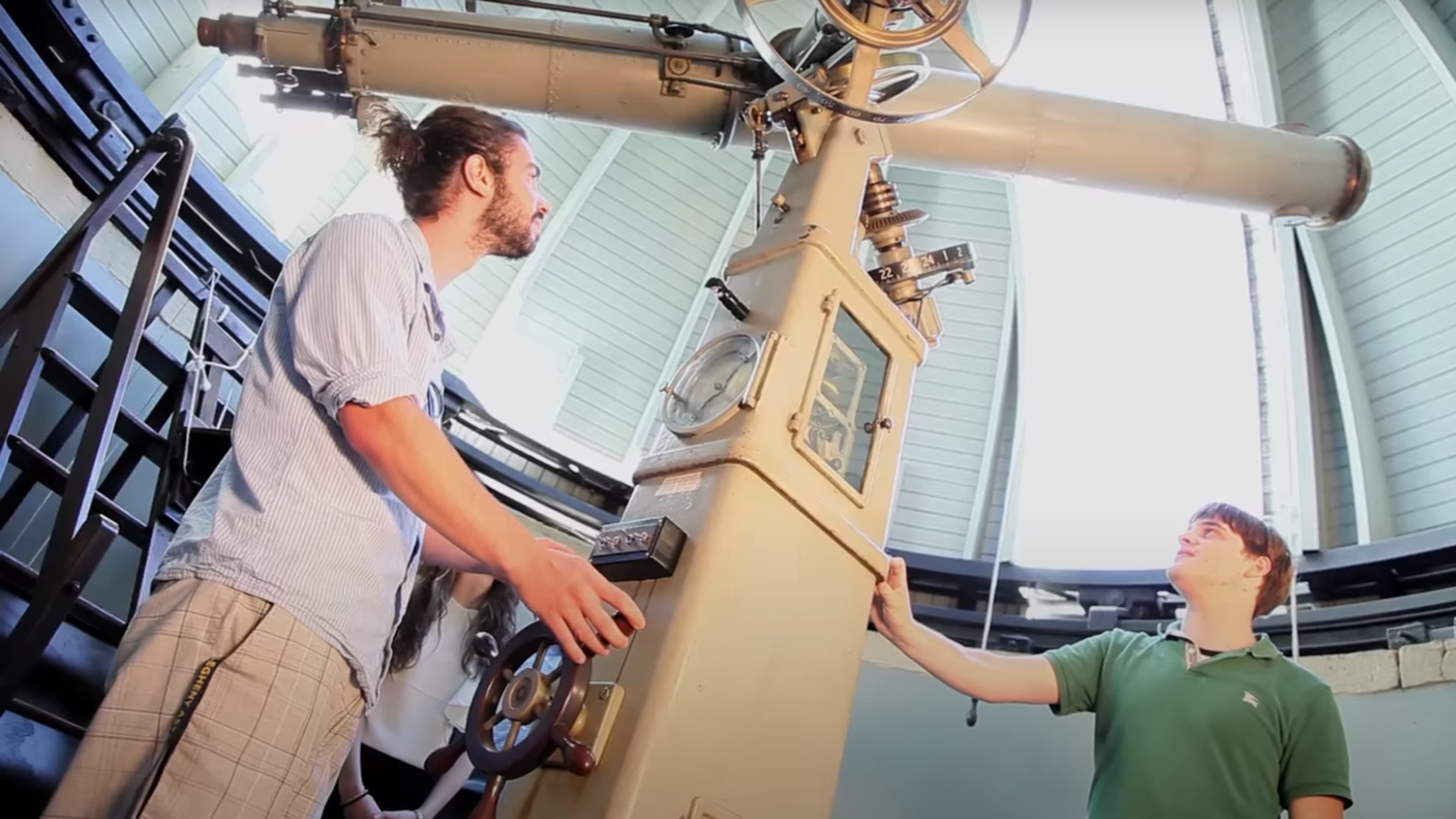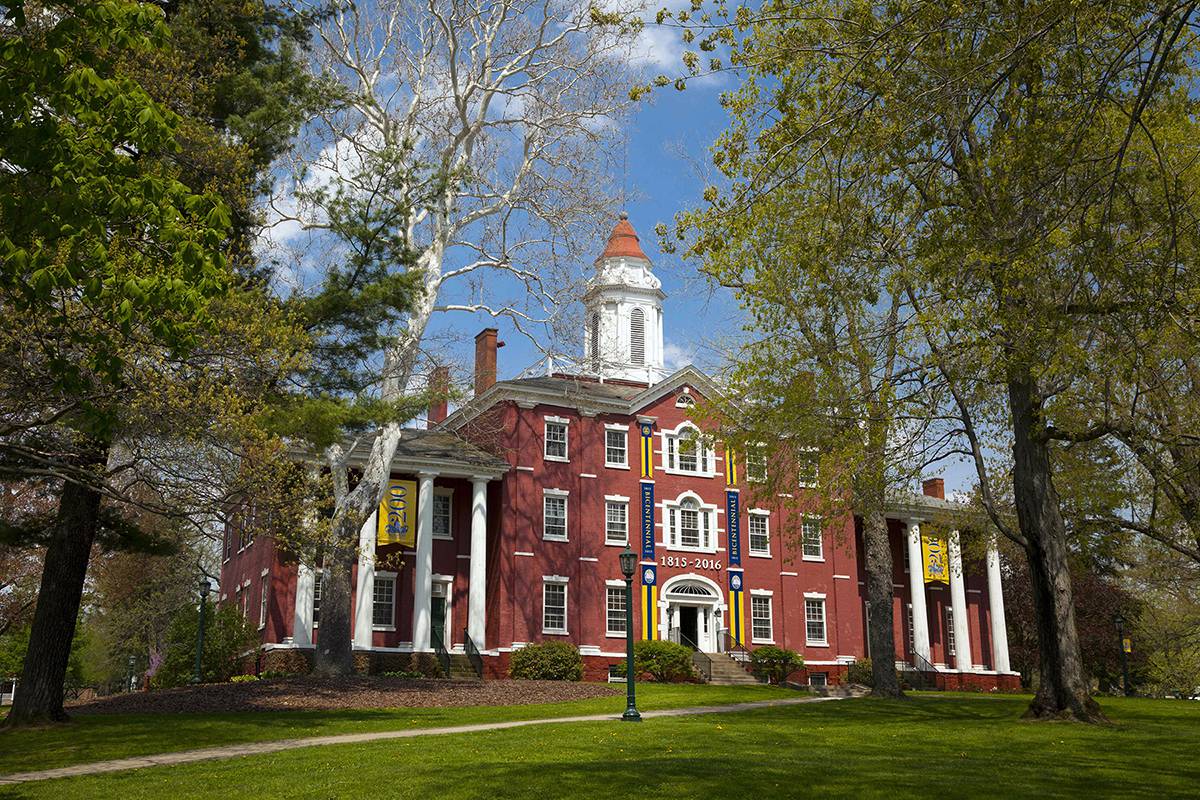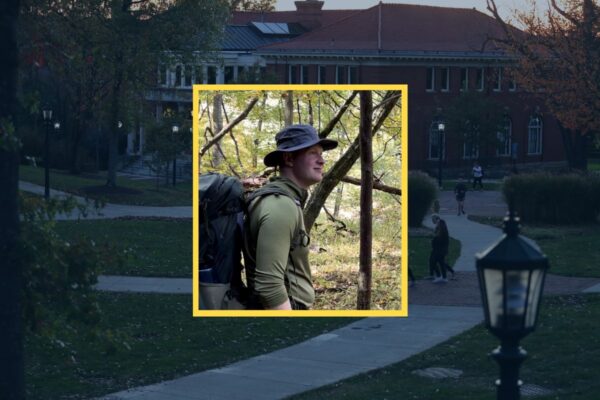Mathematics and Natural Sciences
Biochemistry Major
Biochemistry encourages you to engage with science by integrating biology, chemistry, and physics in innovative ways. You'll develop important communication, research, and critical thinking skills that prepare you for success in a wide range of fields.
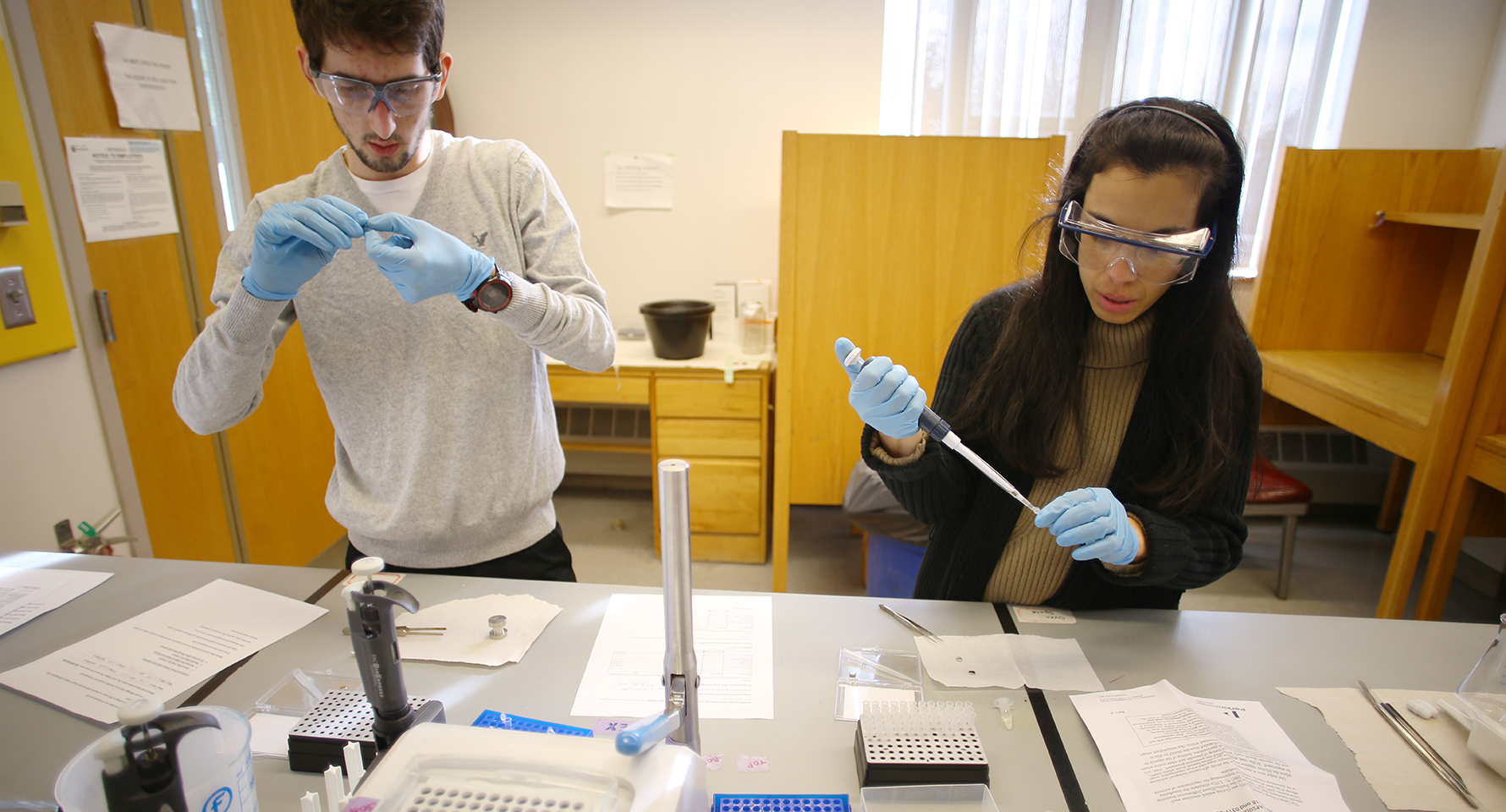
Your Four-Year Journey
Students often combine a major in Biochemistry with a minor or second major in Business, Communication and Cultural Studies, English, International Studies, Psychology, or a variety of other disciplines.
In your first year, you’ll gain an introduction to the foundational concepts in biology, chemistry, and mathematics, taking classes that, in parallel, discuss the importance of interactions, energy, dynamics, equilibrium, and proportional reasoning. Many entry points into the major are available; however, most first-year students take Introduction to Chemistry (I, II), Introduction to Biology I, and Calculus (I, II).

In your second year, you’ll take intermediate and core courses that reinforce the importance of interactions, energy, dynamics, equilibrium, and proportional reasoning. Additionally, a communication course is offered to learn evidence-based scientific writing and speaking. You’ll also take Organic Chemistry I, Introduction to Biology II, Physics I, and a seminar course in chemistry or biology.
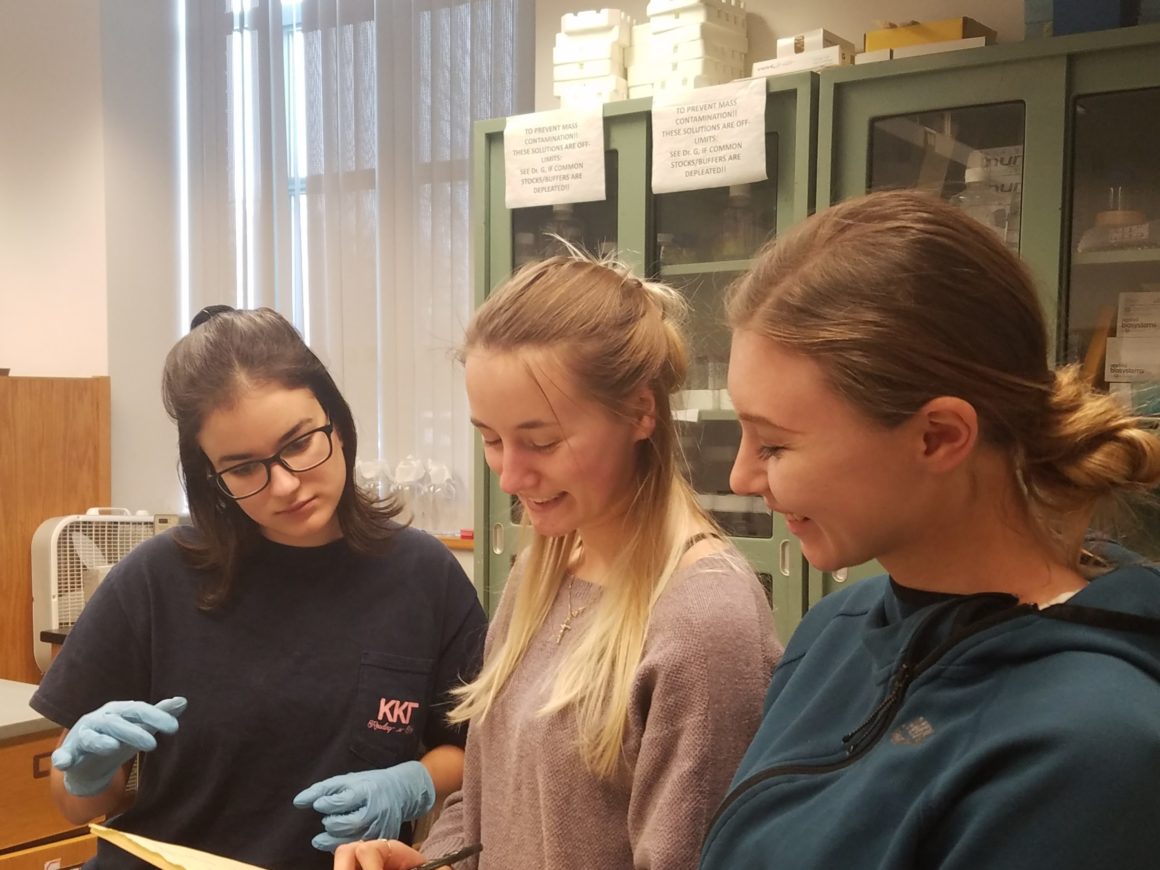
Your third year is your Core Biochemistry interdisciplinary experience: explore the intersection of biology, chemistry, mathematics, and physics. In-class and laboratory experiences model interdisciplinary communication and use of foundational concepts to understand complex biological phenomena. The Junior Seminar strengthens evidence-based scientific writing and speaking and prepares you for the Senior Comp.
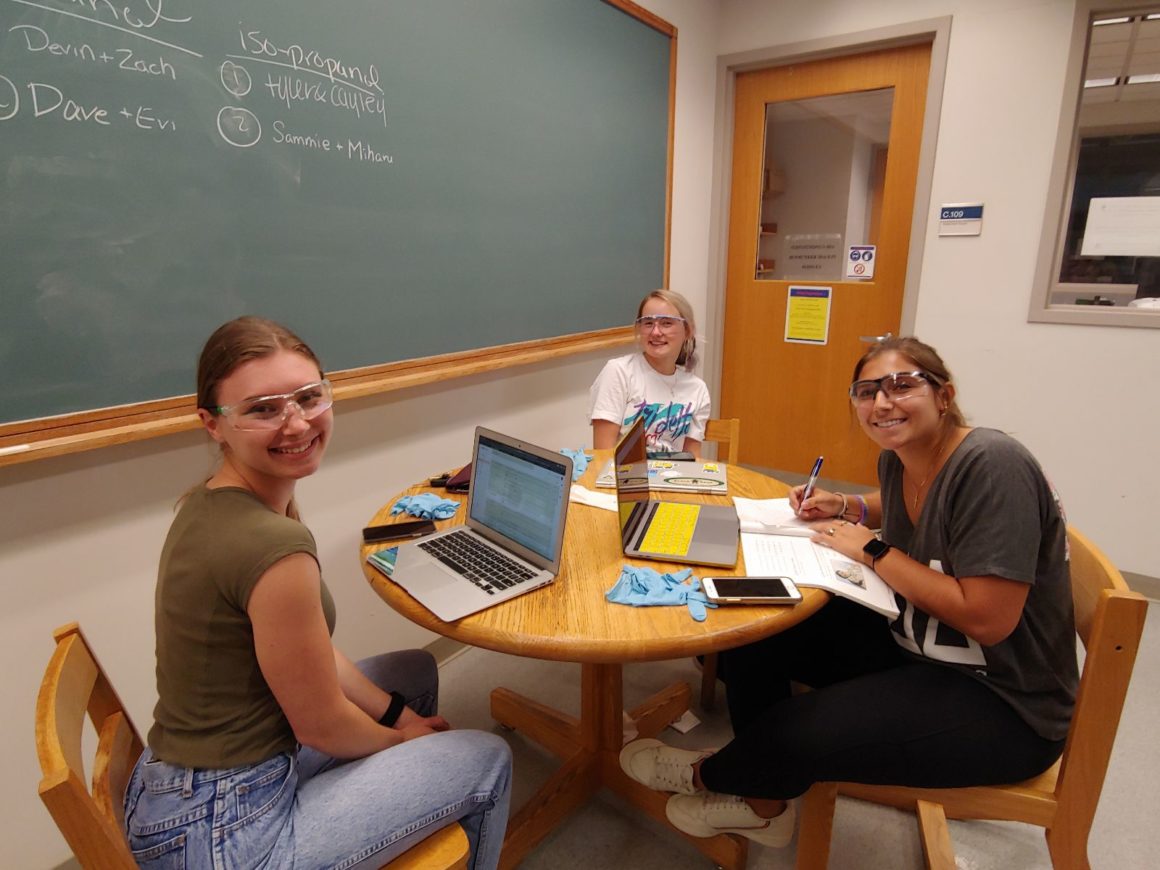
In your final year, you’ll take advanced courses in biology and chemistry that strengthen interdisciplinary communication and utilization of field-specific foundational concepts to understand complex biological phenomena. The Senior Comp (biology or chemistry) is a two-semester project under the mentorship of a Biochemistry faculty advisor, allowing you to develop relevant biochemical hypotheses and carry out investigations to test their original ideas.
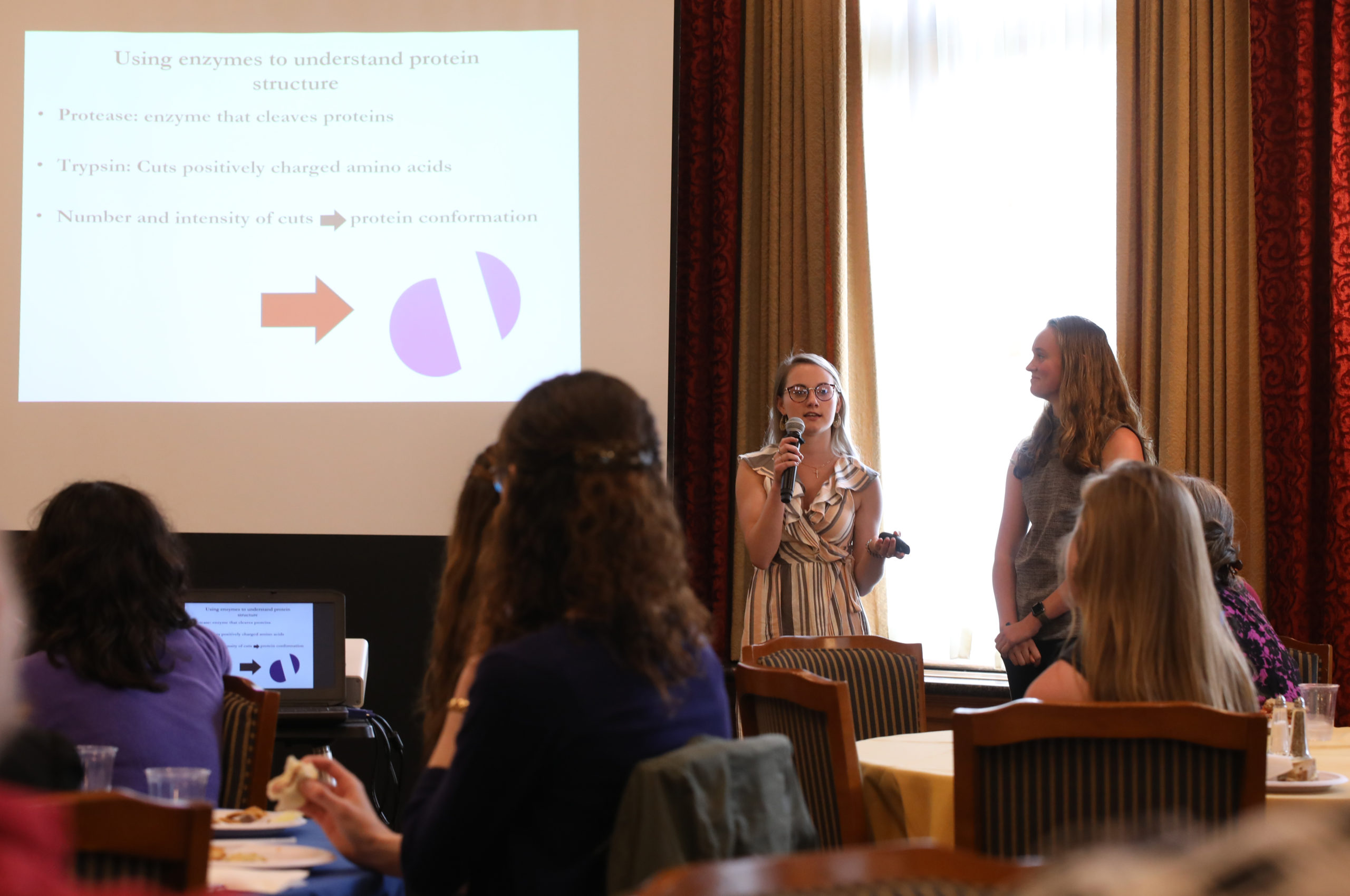
Career Outcomes
93
Of Allegheny graduates are employed, in grad school, or in full-time service within six months.
80+
Acceptance rate to graduate and professional school for Allegheny students
Alumni Careers — A Sampling
Biochemistry Major/Global Health Studies Minor, Class of 2019; MD Candidate, Class of 2023, Penn State College of Medicine
“ The community atmosphere of the Allegheny Biochemistry Program helped me to find my support system and create deep connections with others. Critical thinking is fostered in lecture halls, laboratory work, research opportunities, and even the annual Chemii Bake-Off. In every activity, students are instructed to focus on the thought processes of learning and the various pathways to a solution, rather than focusing solely on obtaining the correct answer. ”







